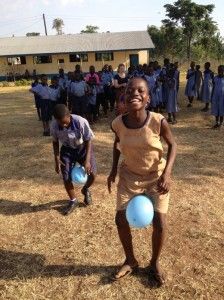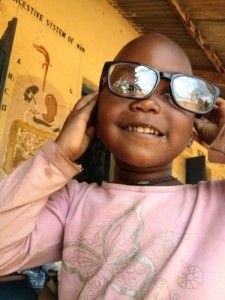One of our recent Uganda volunteers came across a video parody about voluntourism which inspired her to write about her recent experiences with us. We are forever discussing this topic as we see more and more companies offering this type of experience so we wanted to share her (and our!) perspectives on the subject.
The excerpts below are from: Teaching in Uganda, trekking in Tanzania, and kickin’ it in Kenya, a blog by Celia (AV Uganda).
Snapping selfies
“It’s been a long time since I left my students in Uganda and waved a teary-eyed goodbye to my friends in the Diani airport. And as those friends and I have said to each other, the whole thing feels distant and dream-like. Although memories are still vivid and sharp, there’s a Brigadoon-like aura cast over those short four months that make me feel as though I’m recalling a dream. I miss it. I miss them.
I read an article recently that critiques the burgeoning trend of “voluntourism,” which I would like to address. I admit, it made some fair points. There is a large proportion of Westerners who travel to poor, underdeveloped countries in the hopes that they’ll change the world, “one homeless child at a time,” or whatever. And their perception that “snapping selfies with orphans” will help make a difference is false: those selfies might mean something to you, and might help you recall certain people or moments later on, but to those kids that selfie is fleeting and unreachable.
A lot of voluntourist trips involve activities that, in the long run, don’t make much difference to a community one way or the other.”
Doing what you know
“There was a girl who graduated from my high school who went on a trip (with the school) to Tanzania to build something–a library, a primary school, I don’t remember exactly what – at an orphanage. The girls on the trip worked hard and long each day to construct that building, only to find out that, after they finished work every day, Tanzanian workers would come and undo and redo (correctly this time) all the work the girls had done. Here the girls were, feeling great for supposedly taking action and helping people out, but realizing later their work had been for naught.
This serves as a good example that some people should just leave well enough alone: those female high-schoolers were not qualified to do that work. It’s too bad that they were strung along like that and caused others to clean up the mess they had unknowingly made.
The difference we all helped make was visible. I taught Emmanuel how to draw an elephant. Sophie, Astrid and I donated doors and windows to a new building on the school campus, which will provide living quarters for staff members. I showed Gorret that I love her, when I bought her chapatti and soda on Parents’ Day because she thought her mother wouldn’t come. I helped paint Sam’s then up-and-coming (and now fully up-and-running!) health center, so that it could pass its inspection. I gave 120 students the chance to be the digestive system, and showed them how ingredients are like number digits. Sophie showed them in art class that being creative is ok, that they can use their minds instead of rely totally on teachers’ commands.
We all taught them that mistakes and questions are good. We taught them how to be more polite! By the end of the term they were no longer crowding, pushing and shoving for markers or stickers. We helped, in our small way, the economy by essentially paying to provide our time and energy.”
Change someone’s world
“We all arrived in Uganda with open hearts, open to the experience we were only vaguely aware was about to begin. I didn’t come to Uganda simply to teach poor children and pat myself on the back, congratulating myself for being a savior. I knew long beforehand that I wouldn’t be changing the world. Maybe I could change someone’s world; I know a lot of those kids desperately needed the attention I was able and happy to give them. I damn well did make a difference, and the impact my fellow volunteers and I had is not something that can be deconstructed like the cinder blocks at the Tanzanian orphanage. More importantly, though, the impact that they all–the AVs, my students, Monique and Sam–had on me is a constant part of me, flowing through me as steadily and indelibly as the Nile.”
Celia
You can find the full article and link to the original parody which inspired her on Celia’s blog here.
Our own perspective
At AV, we work extremely hard to make sure that we bring individuals to the communities we work in who will add value and make a positive impact. We felt it was important for us to share some of the reasons why we consider our volunteers far more than ‘voluntourists’.
- Our projects are purposefully longer and based in a single location in order for our volunteers to build relationships with the community as well as providing consistency to the schools we work in.
- We identify the skills our volunteers already have to contribute as much as possible to the community.
- We are a not-for-profit organisation, meaning we want to make a difference, not money.
- We always work with the needs of the communities we partner with so only offer projects that are of benefit to them in the long term (for example, our volunteers do not work in orphanages).
- We create programs that add value to the community and make sure our volunteers are not taking the place of local jobs.
- Our volunteers live and work as part of the community and often find themselves making life-changing friendships and a second home which means there is a lifelong connection and mutual understanding.
And finally, we don’t expect our volunteers to single-handedly change the world, at least not in 3 months! However, we do know (from over 5,500 volunteers and 20+ years of experience) that they can and do have a genuine impact in numerous ways. And in the long run, who knows, perhaps their experiences and friendships will make them want to change the world…


